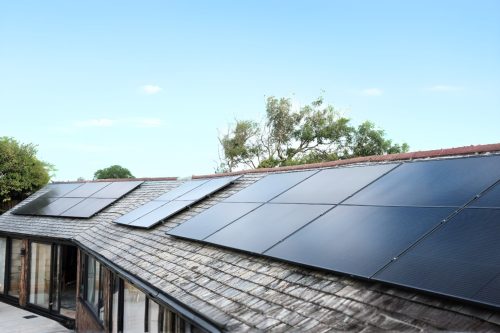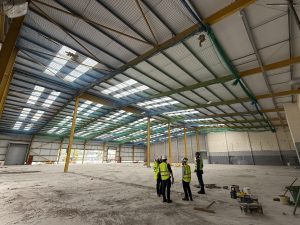Zero-cost solar pilot launches in St Ives to unlock clean energy for millions of homes

A ‘first-of-its-kind’ residential solar pilot has launched in St. Ives, Cornwall that aims to unlock affordable clean energy for millions of UK households.
The project, deployed by solar tech company GRYD Energy in partnership with BK Developments, is the first in the UK to test smart solar and battery storage systems for new-build homes that carry zero upfront cost burden for the developer or homeowner.
The unique funding model means housing developers and homeowners never have to pay for the solar panels installed on their property, saving developers up to £10,000 in hardware costs per home and allowing homeowners to reap the bill-saving benefits of solar from day one.
Three homes are included in the St Ives pilot. The installation has a peak capacity of 11.5 kilowatts and will generate ~11,000 kilowatt hours of electricity per year, providing residents with over 70% of their energy demand.
The solar hardware is funded and maintained by GRYD for a fixed monthly price that is guaranteed and will not rise with inflation for the 25-year life of the system. The system has already reduced residents’ energy bills by 15% and will eliminate 1.2 tonnes of CO2 emissions per home annually.
The combined impact of the three pilot homes will eliminate 100 tonnes of C02 over the 25-year life cycle of the solar system, equivalent to 150 flights from London to New York.
With household energy bills set to rise once more this winter due to volatile global energy markets, many are desperate to go green and regain control of their energy costs. While 400 gigawatts of renewable projects wait to be connected to the UK’s power grid, GRYD’s pilot demonstrates how innovative off-grid models can unlock affordable clean energy for millions and help to accelerate the UK’s net zero mission.
Additional energy generated from the residents’ solar panels will be sold through export agreements GRYD is establishing with national energy suppliers. This will serve as an important revenue stream to support the business’s delivery of low monthly subscription costs to its customers, which are fixed and inflation-proof for 25 years.
GRYD’s smart solar and battery storage system will also support the local grid by providing critical flexibility and reducing strain at peak times, alleviating capacity constraints in some areas.
Tom Jordan, CCO and co-founder of GRYD Energy, said: “I’m proud to deploy our first project here in Cornwall. Our county has an excellent track record of leading the environmental charge and was one of the first to declare a climate emergency – it’s the perfect home for our pilot that has the potential to unlock clean energy for millions of homes.
“Despite solar being the cheapest form of energy, over 9 million UK homeowners can’t access the bill-saving benefits of solar due to the high upfront costs. Developers across the country – who already face increased build costs – have struggled to invest in the renewable technologies they need to decarbonise and futureproof their properties. With the launch of GRYD’s pilot in St Ives, we want to prove how innovative solar solutions can make clean energy accessible and affordable to all.”
Jordan was raised and lives in Cornwall. He had his first taste of startup success founding the nationally recognised beer brand JUBEL in 2017. The business achieved widespread success with its disruptive lager cut with fruit that is now stocked in over 7000+ stores nationwide. Jordan left the business to turn his attention to a climate-focussed venture, co-founding Gryd Energy in 2023.
He said: “The government has set ambitious goals to build 1.5million new homes and become a clean energy superpower by 2030. We have the technology and public support to make it happen – all we need is to apply the right solutions at scale rapidly. We believe GRYD can be one of these vital solutions.
“By eliminating the cost of solar hardware, we can help developers around the country to build high quality homes that are equipped for a net zero future – without denting their margins or passing the cost on to the buyer at a time where mortgage rates and build costs are historically high.”









